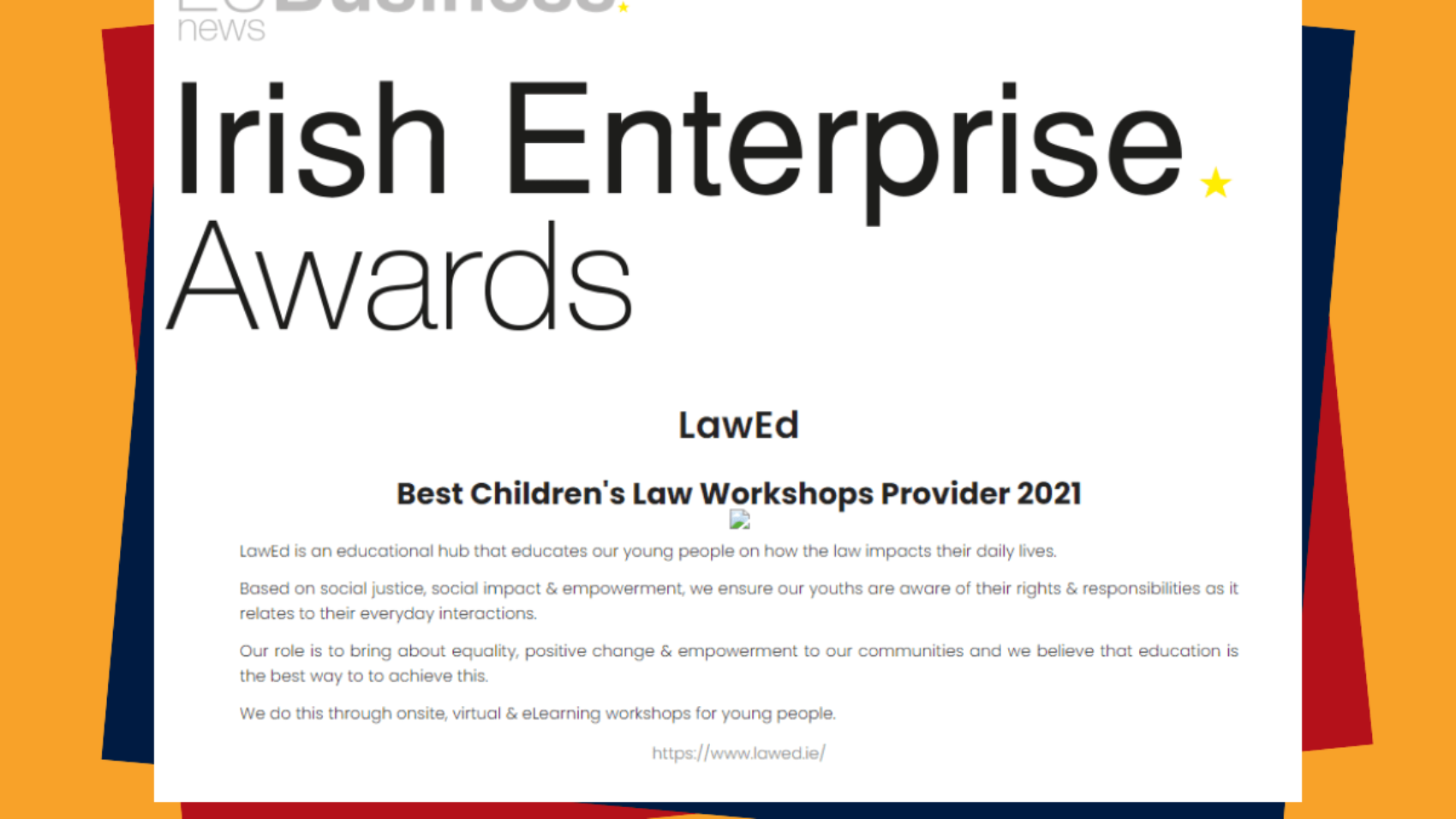Best Children’s Workshop Provider 2021 – Irish Enterprise Awards
We are thrilled to be recognised and awarded ‘Best Children’s Workshop Provider 2021’ at the Irish Enterprise Awards.
We work so hard to deliver premium quality courses and programmes. Always creating new innovative content for the 21st century learner through onsite, virtual and eLearning.
We love working with young people and seeing their faces light up with a new found appreciation of legal literacy and the answers to the many questions that they have.
Also, we have first in class courses and resources for the educators in a school -CSPE, SPHE & RSE programmes.
Thank you to all our trusted service users for your support.
LawEd’s Secondary School Essay Writing Competition 2021
DAC BEACHCROFT DUBLIN ARE DELIGHTED TO SPONSOR LAWED’S SECONDARY SCHOOL ESSAY WRITING COMPETITION 2021
General Rules
- Entries must be 800 – 1,000 words long, typed and written in English.
- The deadline for receipt of all entries is Friday, 9th April 2021, 5:00pm.
- Entries cannot have been previously published.
- No more than one entry per student will be permitted.
- Only entries written by secondary school students currently in Transition Year or 5th Year will be considered. These students must have completed/or will be completing a LawEd workshop/course either through onsite, virtual or eLearning and must be from schools within Ireland only.
Instructions for submission: please post one printed copy of your entry to LawEd, 5 Dunmore Park, Dunmore, Kilkenny R95C9P2 AND e-mail an electronic copy to info@lawed.ie. Please mention the words “essay competition” in the subject line of your e-mail. Entries will not be counted if the hard copy or electronic copy is absent.
Please note that no indication of your identity should appear on the pages of your electronic or paper copy of your essay. Along with the electronic copy of your essay, please attach a separate document with your name, teacher’s name, school, and contact details. To your paper copy, please staple a completed I.D. sheet with your name, teacher’s name, school, and contact details to your entry.
The criteria on which judgement is based is found in the essay writing criteria document on our website www.lawed.ie. The adjudicators’ verdicts are final and no correspondence shall be entered into regarding individual competition entries. Only winners will be notified.
LawEd reserves the right to publish winning entries on their website at www.lawed.ie
Winners will be announced on Friday, 21st May 2021 and prizes will be presented virtually at an awards ceremony on Wednesday, 26th May 2021 The overall winner of this competition will receive a *reconditioned Toshiba Portege Z30 Laptop, second place: €75 Voucher and third place: €50 Voucher.
DAC Beachcroft are sponsors and therefore take no responsibility for the running of this competition.
Download LawEd’s Secondary School Essay Writing Competition 2021 »











